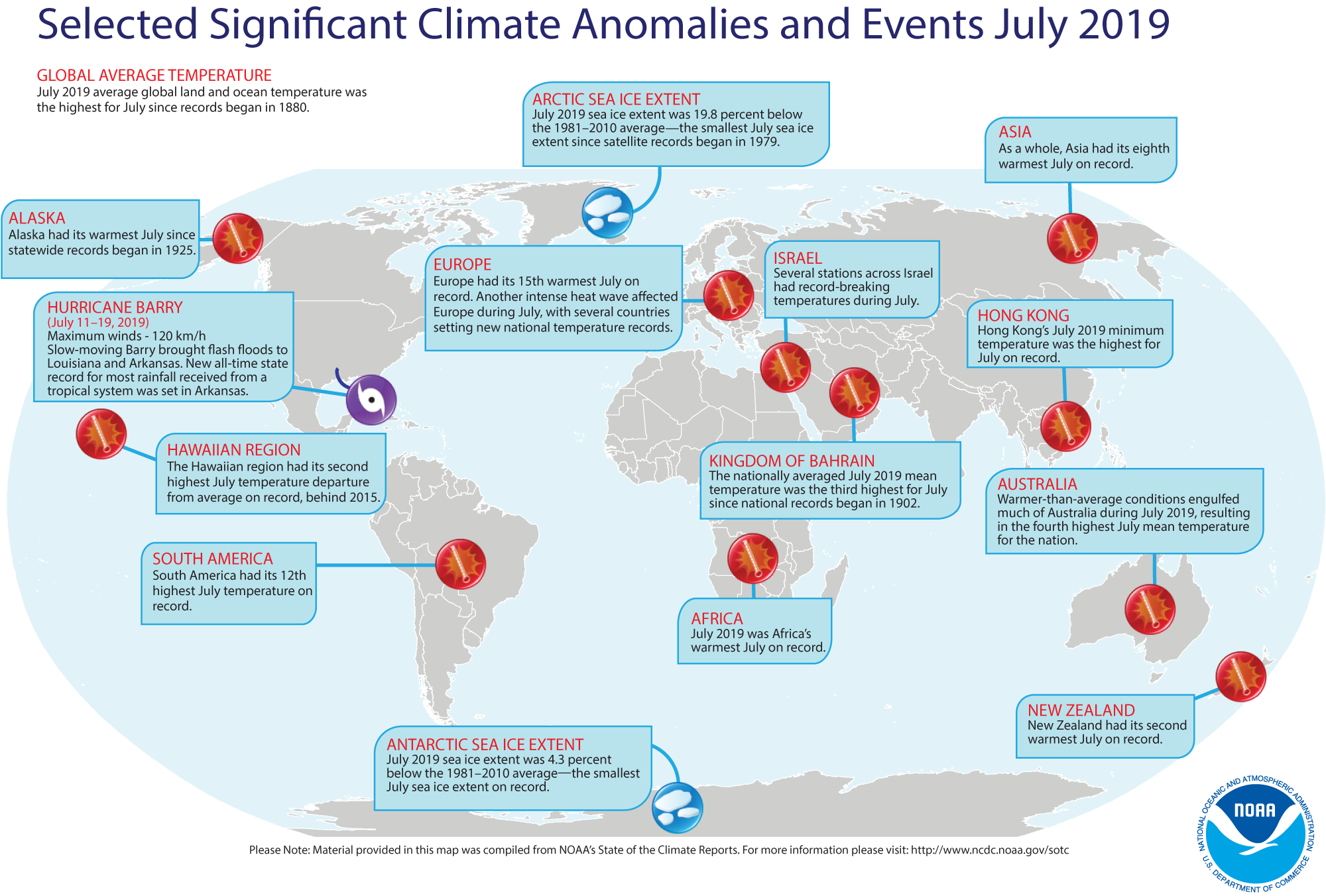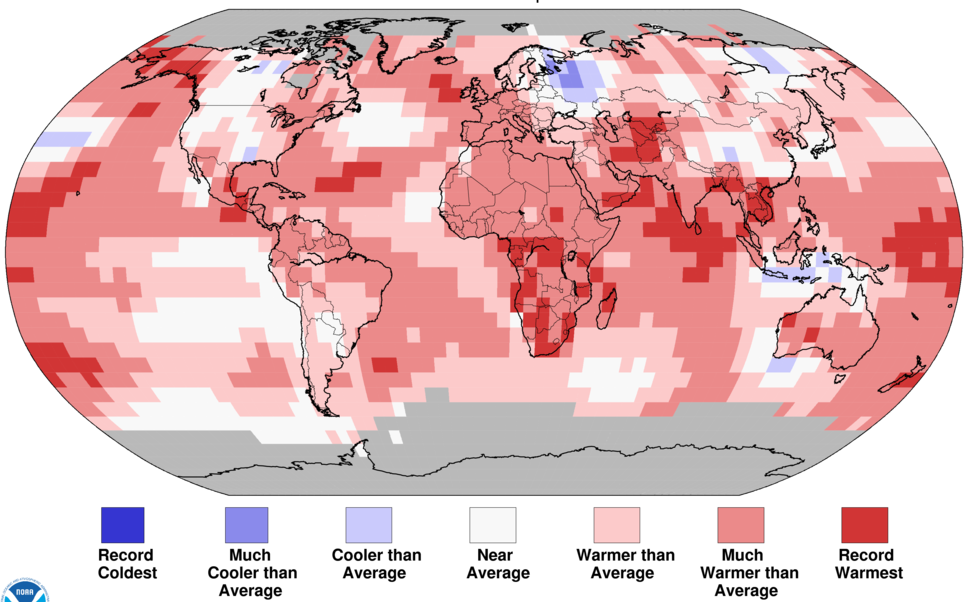Hot, hot, hot. Maybe there's something to this global warming thing after all?
Somewhere in the hot, hot United States, Al Gore is wiping the sweat off his brow and smirking at the nay-sayers.
On Thursday, August 15, the National Oceanic and Atmospheric Administration (NOAA) announced that July 2019—the very sweltering, sizzly July we just suffered through—was the hottest month in the history of recorded temperatures on the planet. The records go all the way back to 1880.
JUST IN: July 2019 now ranks #1 as the warmest month on record, according to the monthly Global Climate Report from @NOAANCEIclimate https://t.co/gzv7jcCDDX #StateOfClimate pic.twitter.com/aNSyYtAsRa
— NOAA (@NOAA) August 15, 2019
On average, the earth's temperature ran about 62.13 degrees in July 2019, which is 1.71 degrees Fahrenheit higher than the average for Julys throughout the 20th century. Vicious, scorching, and unapologetic, July 2019 beat previous record-holder July 2016 by .05 degrees.
Hardly anybody was spared—not Alaska, not Europe, not the Arctic Circle nor Antarctica. In fact, the amount of sea ice in the Arctic ran 19.8 percent below average, while Antarctic sea ice dwindled by 4.3 percent.

Courtesy of NOAA
"Last month was also the 43rd consecutive July and 415th consecutive month with above-average global temperatures," the NOAA report said.
We don't mean to overstate the obvious or keep beating a dead horse, but here's one more fact for ya: The five hottest Julys of all time occurred within the last five years. Or, the last five Julys were the hottest ever. We get it, okay? It's hot. July is hot.
Are you happy now, Al Gore? July will always be hot moving forward. There is no hope. This is our life now. Now bring me a fan.
What are your thoughts on the blisteringly hot July we just survived? How did you stay cool? Do you think it's going to just keep getting worse? Tell us in the comments!
